0
Case study
Community:
Apr 2, 2024
Dual language education is an educational model where instruction is provided to children in two languages, usually English and a partner language. Robust bodies of research find that dual language education is the gold standard for emergent bilingual children. However, there is limited consensus on what high-quality dual language education looks like for emergent bilinguals who are infants/toddlers, preschoolers, and students in the early grades.
In this new report, The Children’s Equity Project, in partnership with The Century Foundation and dozens of research and practitioner partners, operationalizes high-quality dual language education for young emergent bilinguals. We use a seven-part comprehensive framework that includes programmatic structures, curriculum and assessment, language allocation, family leadership and engagement, and more.
This framework is informed by an exhaustive research synthesis of 170 studies, case studies of 11 dual language programs spanning infancy through the elementary years, and input from dozens of researchers, policy leaders, and practitioners. This report helps move the field forward toward the goal of ensuring all children- beginning with emergent bilingual children- have the opportunity to access high quality, dual language education throughout their educational trajectory.
Authored by:
Topics: Advocacy
 Shared by Molli Caite Hughes
Shared by Molli Caite Hughes
Molli Caite Hughes posted a
on Apr 2, 2024
Dual language education is an educational model where instruction is provided to children in two languages, usually English and a partner language. Robust bodies of research find that dual language education is the gold standard for emergent bilingual children.
0
Interactive
Community:
May 1, 2023
Play is not only beneficial but essential for people of all ages. Today, there is increasing interest in the benefits of not only play itself, but specifically people from younger and older generations playing together. The built environment in our communities plays a critical role in facilitating this intergenerational engagement and play. Approaches such as Intergenerational Contact Zones (ICZs) introduce strategies for promoting social inclusion and belonging, employing novel ways of planning and designing public spaces to create intergenerationally enriched environments that provide mutual benefits as well as counteract ageism and age-related stereotypes.
Authored by: Stephanie Firestone and Julia Glassman for AARP Equity by Design- Principles in Action
Topics: Community development, Dual-generation, Exercise, Health, Seniors, Youth
 Shared by Sandra Ware
Shared by Sandra Ware
Sandra Ware posted a
on Jun 8, 2023
Stephanie Firestone and Julia Glassman for AARP Equity by Design- Principles in Action
Play is not only beneficial but essential for people of all ages. Today, there is increasing interest in the benefits of not only play itself, but specifically people from younger and older generations playing together.
0
Interactive
Community:
Jun 1, 2023
Virtual
Authored by: Benton Institute for Broadband and Society
Topics: Broadband, Data sharing, Low-income
 Shared by Sandra Ware
Shared by Sandra Ware
Sandra Ware posted a
on Jun 1, 2023
Benton Institute for Broadband and Society
0
Interactive
Community:
May 24, 2023
Ever wondered what health centers are close to your public housing property? Check out this map to learn more.
Authored by:
Topics: Health, Housing
 Shared by Camille Anoll-Hunter
Shared by Camille Anoll-Hunter
Camille Anoll-Hunter posted a
on May 24, 2023
Ever wondered what health centers are close to your public housing property? Check out this map to learn more.
0
Interactive
Community:
May 2, 2023
Sesame Workshop and Quest Diagnostics as part of the Quest for Health Equity (Q4HE) initiative
are working together to create a bilingual (English and Spanish), multimedia program that helps all
families build healthy habits as a foundation for lifelong well-being. This effort addresses systemic
barriers to health care and helps improve access to the critical resources every family needs to stay
well. The latest materials showcase how there are many ways to support families in being healthy
in both mind and body. The new resources include two videos and a digital storybook.
Below you’ll find sample social media copy to share these resources with your community. We
thank you for your commitment and support as we continue in our mission to help all children grow
smarter, stronger, and kinder.
Authored by: Sesame Street in Communities and Quest Diagnostics
Topics: Child welfare, dual-generation initiative, Early childhood, Family engagement, Health
 Shared by Sandra Ware
Shared by Sandra Ware
Sandra Ware posted a
on May 2, 2023
Sesame Street in Communities and Quest Diagnostics
Sesame Workshop and Quest Diagnostics as part of the Quest for Health Equity (Q4HE) initiative
are working together to create a bilingual (English and Spanish), multimedia program that helps all
families build healthy habits as a foundation for lifelong well-being.
0
Podcast
Community:
Mar 29, 2023
Climate change will affect everyone, so what measures can U.S. communities take now to adapt and thrive? From water-saving landscapes to strategic retreats from hazard-prone areas, experts Colleen Moore and Alexis St. Juliana explore a range of promising responses they’ve identified and explain why historically vulnerable communities must be part of the solutions.
Authored by: Colleen Moore and Alexis St. Juliana for Abt Associates
Topics: Community development, Energy, Environmental Resiliency/Climate Change, Green, Housing, Low-income, Research, Sustainability
 Shared by Sandra Ware
Shared by Sandra Ware
Sandra Ware posted a
on Mar 30, 2023
Colleen Moore and Alexis St. Juliana for Abt Associates
Climate change will affect everyone, so what measures can U.S. communities take now to adapt and thrive? From water-saving landscapes to strategic retreats from hazard-prone areas, experts Colleen Moore and Alexis St.
0
Case study
Community:
Feb 9, 2023
The following are case studies of NYCHA energy efficiency decarbonization programs. More information about the New York City Housing Authority (NYCHA) various sustainability programs can be found in our Sustainability Agenda.
Authored by: NYCHA and CLPHA
Topics: Energy, Environmental Resiliency/Climate Change, Housing, Sustainability
 Shared by Sandra Ware
Shared by Sandra Ware
Sandra Ware posted a
on Feb 9, 2023
The following are case studies of NYCHA energy efficiency decarbonization programs. More information about the New York City Housing Authority (NYCHA) various sustainability programs can be found in our Sustainability Agenda.
0
Interactive
Community:
Jan 24, 2023
Join us for an interactive course that explores practical, strength-based ways providers and other caring community members can help support children and families affected by conflict, crisis, or other traumatic experiences. This course can be taken as the first steps of support for newcomer families in your community.
Authored by: Sesame Street Communities
Topics: Early childhood, Family engagement, Healthy homes, Immigrants, Mental health, Youth
 Shared by Sandra Ware
Shared by Sandra Ware
Sandra Ware posted a
on Jan 24, 2023
Sesame Street Communities
Join us for an interactive course that explores practical, strength-based ways providers and other caring community members can help support children and families affected by conflict, crisis, or other traumatic experiences.
0
Case study
Community:
Nov 29, 2022
Many older LGBTQ+/SGL people who pioneered coming out of the closet are now forced to go back
in. As their housing needs and preferences change with age, prejudice is still rampant. And under the
U.S. Fair Housing Act, gender identity and sexual orientation are not explicitly protected classes where
housing is concerned. Creating appropriate housing for LGBTQ+/SGL seniors must be informed by the
life experiences of older people in this community, which often include family rejection, mistreatment,
and even violence. This means increasing our cultural competence—from the terminology used, to the
design and management of housing developments that consider past traumas. This case study presents
innovative housing projects as well as guidance for developers on how to meet some of the unique
needs of this particular population.
Authored by: Stephanie Firestone and Julia Glassman for AARP Equity by Design- Principles in Action
Topics: Community development, Housing, Seniors
 Shared by Sandra Ware
Shared by Sandra Ware
Sandra Ware posted a
on Nov 29, 2022
Stephanie Firestone and Julia Glassman for AARP Equity by Design- Principles in Action
Many older LGBTQ+/SGL people who pioneered coming out of the closet are now forced to go back
in. As their housing needs and preferences change with age, prejudice is still rampant. And under the
U.S.
0
Case study
Community:
Oct 25, 2022
Unsheltered homelessness is on the rise amid a systemic and widespread lack of affordable housing, supportive services, and livable wages. As the housing crisis worsens, homelessness has become increasingly visible and, as a result, increasingly dominant as a public concern.
Instead of addressing the issue’s root causes—a lack of housing and supportive services—many cities have leaned into punitive responses that criminalize homelessness, such as arresting people for sitting or sleeping in certain public places. But this approach is costly and ineffective. Police don’t solve homelessness, they only move it around—to other neighborhoods, jails, and emergency rooms—rather than connecting people with the housing and services they need.
What would it take to actually end homelessness for people living on the street? And how would that affect the time and resources police spend managing the problem without solving it? New data from a supportive housing program in Denver show what could happen when communities address the underlying causes of homelessness rather than continuing the status quo.
Authored by: Emily Peiffer for the Urban Institute's Housing Matters initiative
Topics: Criminal justice, Homelessness, Supportive housing
 Shared by Sandra Ware
Shared by Sandra Ware
Sandra Ware posted a
on Nov 1, 2022
Emily Peiffer for the Urban Institute's Housing Matters initiative
Unsheltered homelessness is on the rise amid a systemic and widespread lack of affordable housing, supportive services, and livable wages.
0
Case study
Community:
Oct 25, 2022
According to UN-Habitat, the world needs to build 96,000 affordable homes every day to address the
global housing crisis by 2030. Yet, better utilizing existing housing stock—through options such as shared
housing—can make a significant dent in the need to build more housing. With college students often
challenged to find affordable housing and many older adults living alone in homes with spare bedrooms,
these two groups are increasingly benefitting from living together. Universities are often well-suited to
facilitate students living and learning with older adults in nearby communities. Intentionally fostering
intergenerational engagement through places and programs can reduce loneliness, mitigate ageist
stereotypes, and help both groups to thrive.
Authored by: Stephanie Firestone and Julia Glassman for AARP Equity by Design
Topics: Community development, dual-generation initiative, Funding, Health, Homelessness, Housing, Mental health, Seniors, Youth
 Shared by Sandra Ware
Shared by Sandra Ware
Sandra Ware posted a
on Oct 25, 2022
Stephanie Firestone and Julia Glassman for AARP Equity by Design
According to UN-Habitat, the world needs to build 96,000 affordable homes every day to address the
global housing crisis by 2030. Yet, better utilizing existing housing stock—through options such as shared
housing—can make a significant dent in the need to build more housing.
0
Case study
Community:
Aug 1, 2022
Created by the Older Americans Act in 1973, AAAs are part of the national Aging Network. AAAs are the local leaders that develop, coordinate, and deliver a wide range of home and community-based services. These services include information and referral/assistance, case management, home-delivered meals and meals in
congregate settings, in-home services, caregiver supports, transportation, evidence based health and wellness programs, long-term care ombudsman programs, and more. People who receive services provided by AAAs have improved health and well-being, helping them remain in their homes and thrive in the community.
Authored by: U.S Administration for Community Living
Topics: Disabilities, Food insecurity, Homelessness, Housing, Low-income, Seniors, Supportive housing
 Shared by Sandra Ware
Shared by Sandra Ware
Sandra Ware posted a
on Oct 18, 2022
U.S Administration for Community Living
Created by the Older Americans Act in 1973, AAAs are part of the national Aging Network. AAAs are the local leaders that develop, coordinate, and deliver a wide range of home and community-based services.
0
Case study
Community:
Aug 1, 2022
As an Area Agency on Aging (AAA), AgeSpan engages in innovative partnerships with housing providers through the Massachusetts Supportive Housing Program (MSHP). Working with property managers at designated local housing sites, AgeSpan places staff as resident service coordinators (RSCs). The RSCs deliberately build strong, trusting relationships with residents, offering a daily touchstone that greatly improves quality of life. When housing and services are coordinated, older adults and people with disabilities are
better able to live well in the community.
Authored by: U.S administration for Community Living
Topics: Disabilities, Food insecurity, Housing, Low-income, Seniors
 Shared by Sandra Ware
Shared by Sandra Ware
Sandra Ware posted a
on Oct 18, 2022
U.S administration for Community Living
As an Area Agency on Aging (AAA), AgeSpan engages in innovative partnerships with housing providers through the Massachusetts Supportive Housing Program (MSHP). Working with property managers at designated local housing sites, AgeSpan places staff as resident service coordinators (RSCs).
0
Interactive
Community:
Jun 29, 2022
In 2020 we launched a dedicated effort to learn more about legal issues surrounding unaccompanied minors experiencing homelessness. This project was intended to guide both organizations’ ongoing work and advocacy and develop resources to help the field better prevent and end homelessness among minors.
This toolkit includes:
• Key issues and challenges for minors experiencing homelessness;
• Strategies and lessons learned from advocacy for state minor consent to services laws (including questions to consider);
• Legal issues and considerations relevant to host homes for minors;
• Working towards equity while serving minors;
• Child welfare and youth homelessness; and
• Additional legal and policy issues.
Authored by: National Network for Youth
Topics: Advocacy, Child welfare, Community development, Education, Foster care, Homelessness, Housing, Legislation & Policy, Racial inequalities, Research, Supportive housing, Sustainability, Youth
 Shared by Karina George
Shared by Karina George
Karina George posted a
on Jun 29, 2022
National Network for Youth
In 2020 we launched a dedicated effort to learn more about legal issues surrounding unaccompanied minors experiencing homelessness.
0
Podcast
Community:
Aug 19, 2021
The social determinants of health are interactive and multi-faceted, but often the experts who address them are siloed—as are their data. How do we share the data that can tell us the full story about the people who rely on—and receive—support? Chris Tappan and Lori Hunter discuss data systems, collaboration between agencies, and the vital importance of equitable services in this latest episode of The Intersect.
Authored by: Abt Associates
Topics: Data sharing, Health
 Shared by Jordan Jackson
Shared by Jordan Jackson
Jordan Jackson posted a
on Aug 19, 2021
The social determinants of health are interactive and multi-faceted, but often the experts who address them are siloed—as are their data. How do we share the data that can tell us the full story about the people who rely on—and receive—support?
0
Interactive
Community:
Aug 3, 2021
Use this toolkit to assist in pursuing partnerships with school districts to provide afterschool and summer programs to support student recovery. Districts must spend a minimum of 20% of their funds on learning loss, which explicitly calls out summer and afterschool programs as an allowable use.
Authored by: Afterschool Alliance
Topics: Education, Funding, Out-of-school time
 Shared by Kirsten Greenwell
Shared by Kirsten Greenwell
Kirsten Greenwell posted a
on Aug 3, 2021
Use this toolkit to assist in pursuing partnerships with school districts to provide afterschool and summer programs to support student recovery.
0
Podcast
Community:
Jun 16, 2021
The social determinants of health are interactive and multi-faceted, but often the experts who address them are siloed—as are their data. How do we share the data that can tell us the full story about the people who rely on—and receive—support? Chris Tappan and Lori Hunter discuss data systems, collaboration between agencies, and the vital importance of equitable services in this latest episode of The Intersect.
Authored by: Eric Tischler, Chris Tappan, and Lori Hunter with ABT Associates
Topics: Child welfare, COVID-19, Data sharing, Health
 Shared by Camille Anoll-Hunter
Shared by Camille Anoll-Hunter
Camille Anoll-Hunter posted a
on Jun 25, 2021
Eric Tischler, Chris Tappan, and Lori Hunter with ABT Associates
The social determinants of health are interactive and multi-faceted, but often the experts who address them are siloed—as are their data. How do we share the data that can tell us the full story about the people who rely on—and receive—support?
0
Podcast
Community:
Jan 13, 2021
On a day-to-day basis, vulnerable populations suffer from inequities in health, wealth, and education. These same people are then disproportionately impacted by catastrophes ranging from hurricanes to COVID-19, which only serve to underline the great and urgent need for equity across race, gender, and income. In the latest episode of The Intersect, Madeline Colety and Lorine Giangola discuss how Abt’s housing and resilience work is helping clients promote equity.
Authored by: Madeline Colety & Lorine Giangola for ABT ASSOCIATES
Topics: Advocacy, Community development, Education, Food insecurity, Health, Healthy homes, Homelessness, Housing, Low-income, Partnerships, Racial inequalities
 Shared by Housing Is
Shared by Housing Is
Housing Is posted a
on Jan 14, 2021
Madeline Colety & Lorine Giangola for ABT ASSOCIATES
On a day-to-day basis, vulnerable populations suffer from inequities in health, wealth, and education.
0
Podcast
Community:
Nov 23, 2020
“Bending the Arc” explores the everyday work of creating inclusive, equitable and racially just communities. This podcast spotlights bold thinking and action by creative, passionate, experienced thinkers and actors from cities and communities around the US and Canada. In this new episode we talk with Dr. Clinton Boyd, Jr., a Postdoctoral Associate at the Samuel Dubois Cook Center on Social Equity at Duke University. In our conversation we touch on a wide range of topics including our personal journeys as Black fathers, the undervaluing of Black men in general versus the idolizing of Black male athletes and entertainers, and what Clinton has learned from his research, including the Dads2Kids home visiting project. Clinton and Dr. Deirdre Oakley of Georgia State University co-authored an essay for the What Works volume on the role of Black fathers in mixed-income communities.
Authored by: National Initiative on Mixed-Income Communities for CASE WESTERN RESERVE UNIVERSITY
Topics: Advocacy, Community development, Racial inequalities, Youth
 Shared by Housing Is
Shared by Housing Is
Housing Is posted a
on Jan 12, 2021
National Initiative on Mixed-Income Communities for CASE WESTERN RESERVE UNIVERSITY
“Bending the Arc” explores the everyday work of creating inclusive, equitable and racially just communities. This podcast spotlights bold thinking and action by creative, passionate, experienced thinkers and actors from cities and communities around the US and Canada.
0
Podcast
Community:
Sep 28, 2020
The National Initiative on Mixed-Income Communities of the Jack, Joseph and Morton Mandel School of Applied Social Sciences of Case Western Reserve University has launched a new podcast.
The new podcast, “Bending the Arc” is hosted by Dr. Mark Joseph and Dr. Amy Khare.
Join us to learn about strategies to make communities diverse, vibrant places of well-being and opportunity. Listen to the trailer and the first three episodes wherever you listen to podcasts.
Authored by: Mark Joseph and Amy Khare for CASE WESTERN RESERVE UNIVERSITY
Topics: Community development, Healthy homes, Vision
 Shared by Housing Is
Shared by Housing Is
Housing Is posted a
on Oct 29, 2020
Mark Joseph and Amy Khare for CASE WESTERN RESERVE UNIVERSITY
The National Initiative on Mixed-Income Communities of the Jack, Joseph and Morton Mandel School of Applied Social Sciences of Case Western Reserve University has launched a new podcast.
The new podcast, “Bending the Arc” is hosted by Dr. Mark Joseph and Dr.
0
Podcast
Community: Postsecondary
May 28, 2020
Community colleges graduation rates remain low. Some studies have shown that students who enroll in summer courses are more likely to stay on track and graduate, yet despite these benefits most college students do not attend during the summer.
So why don’t students attend, and how can colleges encourage more of them to enroll in the summer? To answer these questions MDRC launched the Encouraging Additional Summer Enrollment — or EASE — project in partnership with the Ohio Association of Community Colleges and 10 community colleges in Ohio. MDRC designed, implemented, and tested two interventions to encourage summer enrollment, using insights from behavioral science, a study of how people make decisions. Both interventions worked to increase enrollment, and both could be operated at a relatively low cost
Authored by: Leigh Parise for MDRC
Topics: Attendance, Education, Post-secondary, School-readiness, Workforce development
 Shared by Housing Is
Shared by Housing Is
Housing Is posted a
on Oct 6, 2020
Community colleges graduation rates remain low.
0
Case study
Community:
May 1, 2019
In 2011, Cleveland had one of the highest rates of childhood lead poisoning in the United States, with almost one of every five children in the city receiving this diagnosis. Childhood asthma rates were also extremely high, especially for children living in poverty, according to 2008 statewide statistics for Ohio. Follow along in this new case study with the Engaging the Community in New Approaches to Healthy Housing (ECNAHH) initiative, part the BUILD Health Challenge’s first cohort, as they worked to reduce the occurrence of asthma, chronic obstructive pulmonary disease (COPD), and lead poisoning related to unhealthy housing conditions in three sub-neighborhoods in Cleveland.
Authored by: The BUILD Health Challenge
Topics: Health, Midwest, Partnerships, Research
 Shared by Housing Is
Shared by Housing Is
Housing Is posted a
on Jun 13, 2019
The BUILD Health Challenge
In 2011, Cleveland had one of the highest rates of childhood lead poisoning in the United States, with almost one of every five children in the city receiving this diagnosis.
0
Podcast
Community:
Jun 13, 2019
An interview with Emily Yu, MBA, the Executive Director of the BUILD Health Challenge, an All In partner initiative that supports local collaborations between community-based organizations, health departments, and hospitals/health systems that are working to address important health issues in their communities.
Authored by: All In: Data for Community Health
Topics: Data sharing, Health, Partnerships
 Shared by Housing Is
Shared by Housing Is
Housing Is posted a
on Jun 13, 2019
All In: Data for Community Health
An interview with Emily Yu, MBA, the Executive Director of the BUILD Health Challenge, an All In partner initiative that supports local collaborations between community-based organizations, health departments, and hospitals/health systems that are working to address important health issues in their
0
Podcast
Community:
Jun 4, 2019
Truly understanding all the dimensions of the nation's housing affordability crisis requires listening to those with lived experience – people who have experienced homelessness and housing instability. In this episode, we look at issues of affordable housing through the stories of seven people across the country who have been directly impacted. These stories were captured by the campaign's partner at the "Where Will We Live" campaign at the National Housing Trust and Enterprise Community Partners. "Where Will We Live" amplifies the voices of those with lived experience and arms them with the knowledge to take action to ensure affordable housing resources are protected and expanded.
Authored by: Opportunity Starts at Home
Topics: Homelessness, Housing, Partnerships
 Shared by Housing Is
Shared by Housing Is
Housing Is posted a
on Jun 4, 2019
Opportunity Starts at Home
Truly understanding all the dimensions of the nation's housing affordability crisis requires listening to those with lived experience – people who have experienced homelessness and housing instability.
0
Podcast
Community:
Padma Thangaraj, MS, PMP, is the Vice President of Information Services & Analytics at All Chicago Making Homelessness History, a nonprofit organization that is working to integrate housing, health, and human services data to coordinate care for Chicago residents that are experiencing housing insecurity or homelessness. As one of the pilot awardees of DASH CIC-START, All Chicago worked to refine their mechanisms for exchanging data between hospitals, health care payers, and the county’s Homeless Management Information System (HMIS). She joined the podcast to share her lessons learned and advice for others working to improve improve residential stability and health outcomes through the integration of HMIS and other data.
Authored by: All In: Data for Community Health
Topics: Data sharing, Health, Homelessness, Housing, Midwest
 Shared by Housing Is
Shared by Housing Is
Housing Is posted a
on May 2, 2019
All In: Data for Community Health
Padma Thangaraj, MS, PMP, is the Vice President of Information Services & Analytics at All Chicago Making Homelessness History, a nonprofit organization that is working to integrate housing, health, and human services data to coordinate care for Chicago residents that are experiencing housing in
 Shared by Molli Caite Hughes
on Apr 2, 2024
Shared by Molli Caite Hughes
on Apr 2, 2024
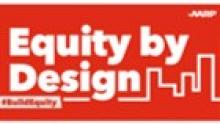
 Shared by Sandra Ware
on Jun 8, 2023
Shared by Sandra Ware
on Jun 8, 2023
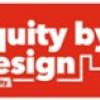

 Shared by Sandra Ware
on Jun 1, 2023
Shared by Sandra Ware
on Jun 1, 2023
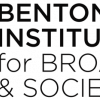
 Shared by Camille Anoll-Hunter
on May 24, 2023
Shared by Camille Anoll-Hunter
on May 24, 2023

 Shared by Sandra Ware
on May 2, 2023
Shared by Sandra Ware
on May 2, 2023

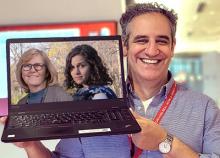
 Shared by Sandra Ware
on Mar 30, 2023
Shared by Sandra Ware
on Mar 30, 2023

 Shared by Sandra Ware
on Feb 9, 2023
Shared by Sandra Ware
on Feb 9, 2023

 Shared by Sandra Ware
on Jan 24, 2023
Shared by Sandra Ware
on Jan 24, 2023


 Shared by Sandra Ware
on Nov 29, 2022
Shared by Sandra Ware
on Nov 29, 2022

 Shared by Sandra Ware
on Nov 1, 2022
Shared by Sandra Ware
on Nov 1, 2022
 Shared by Sandra Ware
on Oct 25, 2022
Shared by Sandra Ware
on Oct 25, 2022
 Shared by Sandra Ware
on Oct 18, 2022
Shared by Sandra Ware
on Oct 18, 2022
 Shared by Sandra Ware
on Oct 18, 2022
Shared by Sandra Ware
on Oct 18, 2022
 Shared by Karina George
on Jun 29, 2022
Shared by Karina George
on Jun 29, 2022
 Shared by Jordan Jackson
on Aug 19, 2021
Shared by Jordan Jackson
on Aug 19, 2021
 Shared by Kirsten Greenwell
on Aug 3, 2021
Shared by Kirsten Greenwell
on Aug 3, 2021
 Shared by Camille Anoll-Hunter
on Jun 25, 2021
Shared by Camille Anoll-Hunter
on Jun 25, 2021

 Shared by Housing Is
on Jan 14, 2021
Shared by Housing Is
on Jan 14, 2021

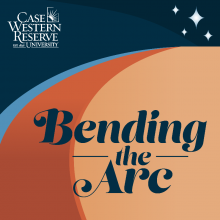
 Shared by Housing Is
on Jan 12, 2021
Shared by Housing Is
on Jan 12, 2021

 Shared by Housing Is
on Oct 29, 2020
Shared by Housing Is
on Oct 29, 2020

 Shared by Housing Is
on Oct 6, 2020
Shared by Housing Is
on Oct 6, 2020

 Shared by Housing Is
on Jun 13, 2019
Shared by Housing Is
on Jun 13, 2019
 Shared by Housing Is
on Jun 13, 2019
Shared by Housing Is
on Jun 13, 2019
 Shared by Housing Is
on Jun 4, 2019
Shared by Housing Is
on Jun 4, 2019
 Shared by Housing Is
on May 2, 2019
Shared by Housing Is
on May 2, 2019



